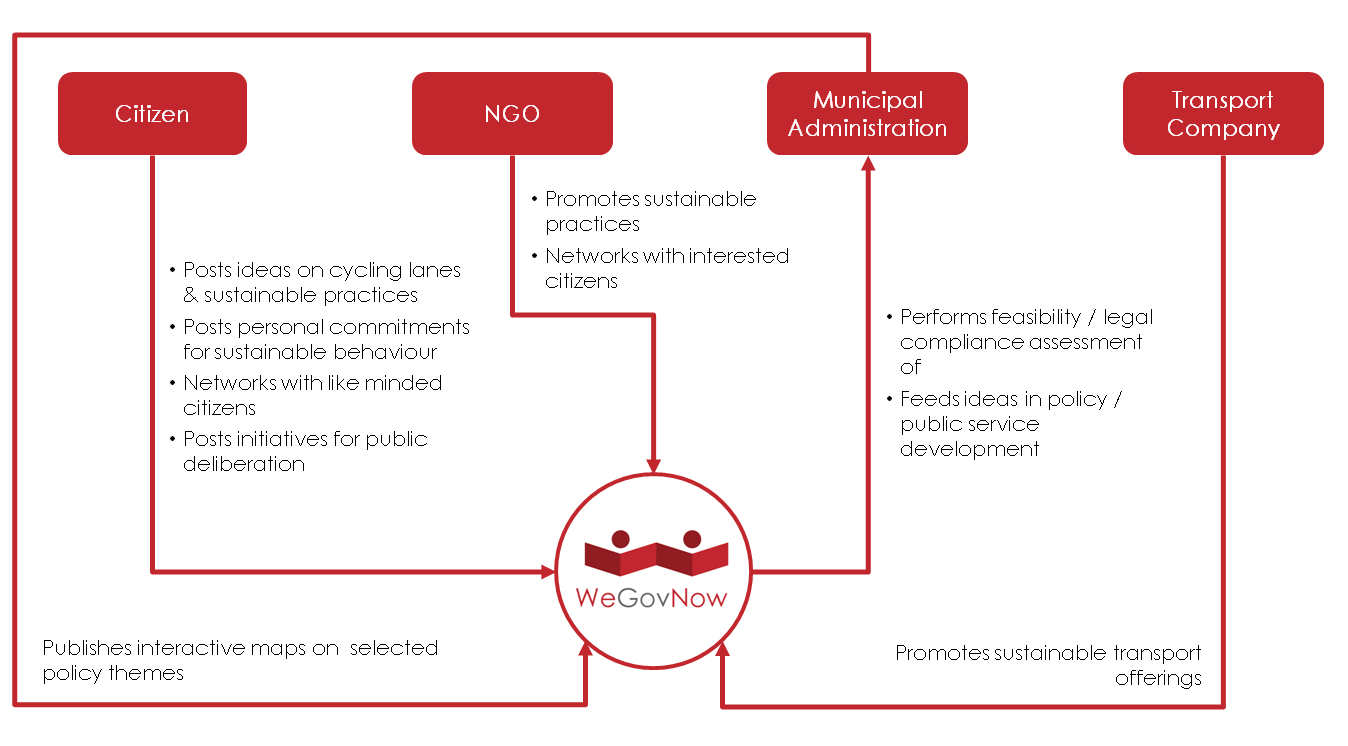
Here are the instructions how to enable JavaScript in your web browser

|
During the final year of the projet, the WeGovNow platform has been piloted under day-to-day conditions in terms of a publicly available online service in three municipalities in the United Kingdom and Italy. For each municipality a WeGovNow platform instance tailored to the specific needs and requirements was implemented: |
|
City of TurinLondon Borough of SouthwarkSan Donà di Piave
Addressing local policy challenges with the help of WeGovNow |
|
|
For the purpose of the piloting, the three municipalities have developed a range of policy scenarios. These were directed towards exploiting capabilities provided by the pilot platform to address local policy challenges that had emerged independent of the WeGovNow project. In this context, the pilot platform was used with a view to:
|
|
To this end, a number of stakeholder participation processes have been designed, based in different ways on the various online functions of the WeGovNow platform. Three selected examples from the pilot sites are desribed below. For more information about the WeGovNow pilots and their outcomes, please see D2.6 and D4.3 in our project reports section.
The City of Turin has adopted the WeGovNow pilot platform for co-developing certain sections of an urban park, the Parco Dora. Already some years ago, this former industrial site was transformed into a public space. Today this area offers several playgrounds for children and sports facilities such as skate spaces and volleyball, basketball, tennis and football courts. A remaining sub-set of the area, the so called Vitali Area, is still to be developed with help of funds available from a national program concerning suburban development. In the future, this area is intended to provide a public space attracting young people in particular, e.g. for daily activities such as doing sports or socialising but also for occasional events such as concerts, festivals, cultural or religious activities where thousands of people may gather together.
The participatory process developed for the purpose of the “Parco Dora” use case scenario has combined offline participation activities, in particular a series of publicly accessible co-design workshops, with online engagement activities through the WeGovNow platform.
How the municipal administration could utilise WeGovNowThe public administration prepared and held a series of offline co-design workshops. In parallel, the public administration monitored proposals and ideas posted by the citizens through WeGovNow, and systemised theses as an input to a series of subsequent offline workshops. After each off-line workshop, these systemised outcomes were further fed back into WeGovNow respectively. Proposals having emerged throughout this iterative loop were also assessed by the public administration in relation to their feasibility and compliance with any requirements potentially emerging form relevant laws / regulations, e.g. when it comes to personal safety, public procurement processes and the like. |
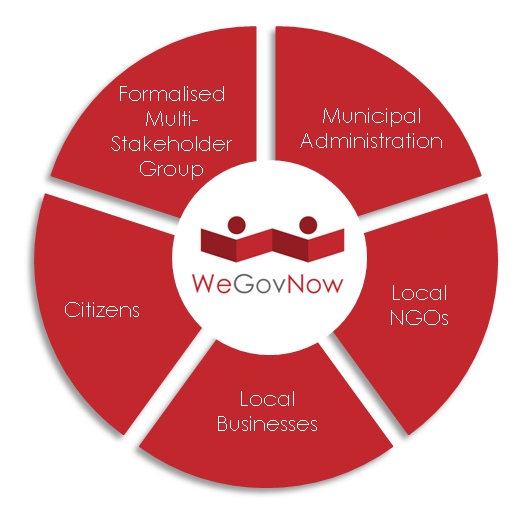 |
An established group of local stakeholders representing citizen networks, associations and local businesses supported the public administration in conceptually planning and promoting the overall participation process.
Representatives of local NGOs and businesses participated in the offline workshops organised by the public administration. At the same time they were able to post proposals for public deliberation and additional supportive information on WeGovNow.
Citizens participated in the offline workshops organised by the public administration. At the same time they were able to post proposals for public deliberation and additional supportive information on WeGovNow and vote on proposals. Citizens could also post on an interactive map of the Parco Dora area and mark how they have typically used the parkup to now.
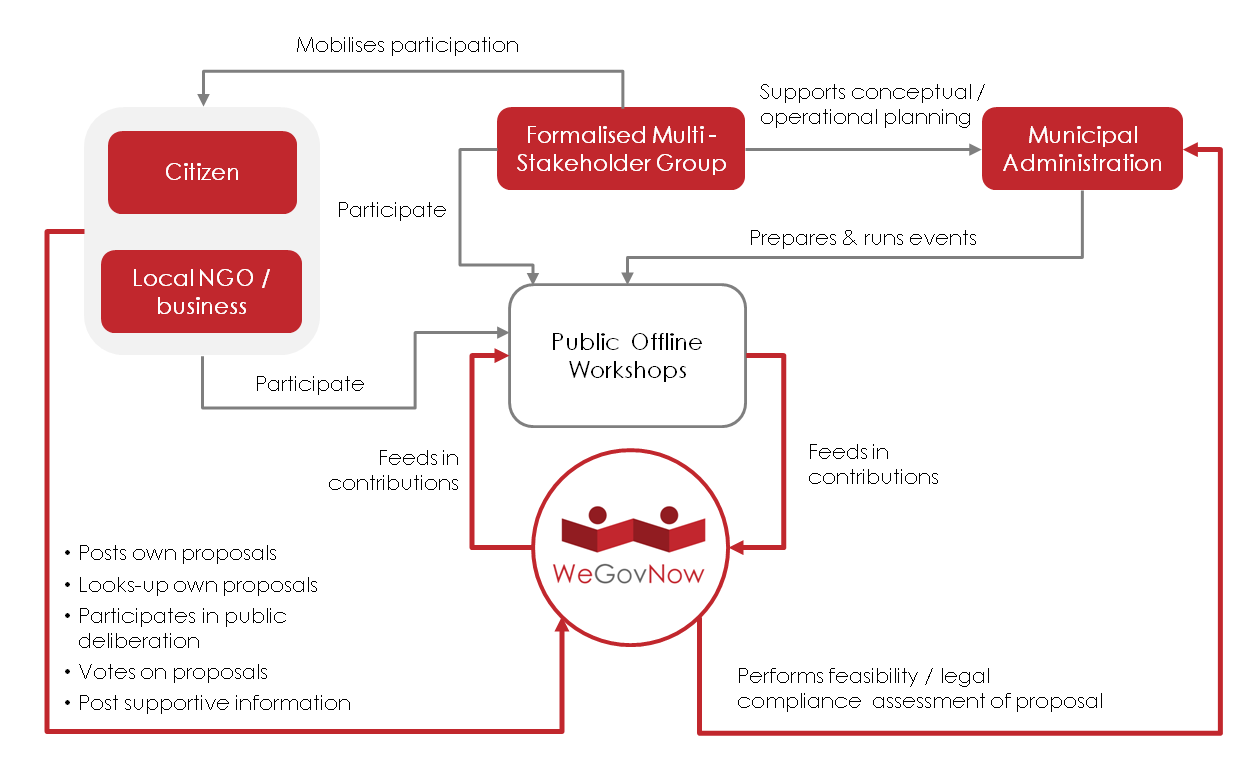
The London borough of Southwark is committed to promoting equality of opportunity for all young people. Currently young people may experience barriers to accessing employment and training opportunities. Further, existing routes into employment and training do not make adequate use of the new technologies that young people may be familiar with in other areas of their lives. Against this background, in Southwark WeGovNow has been considered an opportunity to leverage technology by presenting the opportunities that young people need in a format that they understand and appreciate.
Within this policy use case scenario, the ambition therefore was to stimulate use of the WeGovNow pilot platform as a youth focused digital careers and employability hub which offers local young people opportunities to access employment opportunities, online networking with professionals and like-minded people, and to forge links with businesses and employers across various industries and sectors.
How young citizens could utilise WeGovNowYoung people have been able to post succinct self presentations, e.g. supported media content. They could look up opportunities for training or employment posted by local training organisations and employers. Furthermore they had the opportunity to network with like minded people and/or potential employers. How the Youth Council could utilise WeGovNowThe local Youth Council has been able to configure and publish a bespoke interactive local map on youth employment issues. How potential employers could utilise WeGovNowPotential employers were able to post training and/or employment opportunities. They could also network with networks with young citizens. |
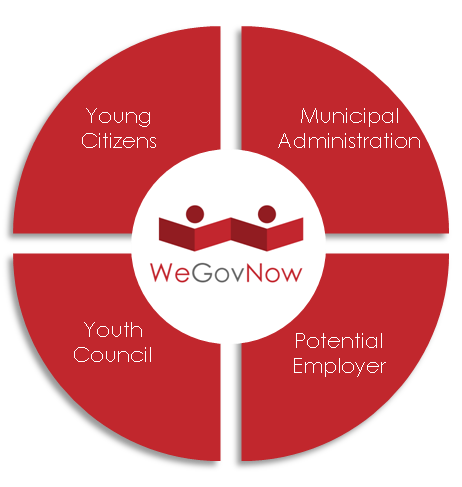 |
The public administration monitored contributions posted by the users on a regular basis, with a view to identifying potential gaps in the demand and supply of training / employment opportunities. This was also considered to feed insights gained into further policy / public service development.
The London borough of Southwark is committed to promoting equality of opportunity for all young people. Currently young people may experience barriers to accessing employment and training opportunities. Further, existing routes into employment and training do not make adequate use of the new technologies that young people may be familiar with in other areas of their lives. Against this background, in Southwark WeGovNow was used as an opportunity to leverage technology by presenting the opportunities that young people need in a format that they understand and appreciate. To this end a participation process was developed in collaboration with the Local Youth Council as summarised by (Textbox 7). In general, WeGovNow acts as a bridge between employers seeking to reach young people and young people seeking employment, training or work experience.
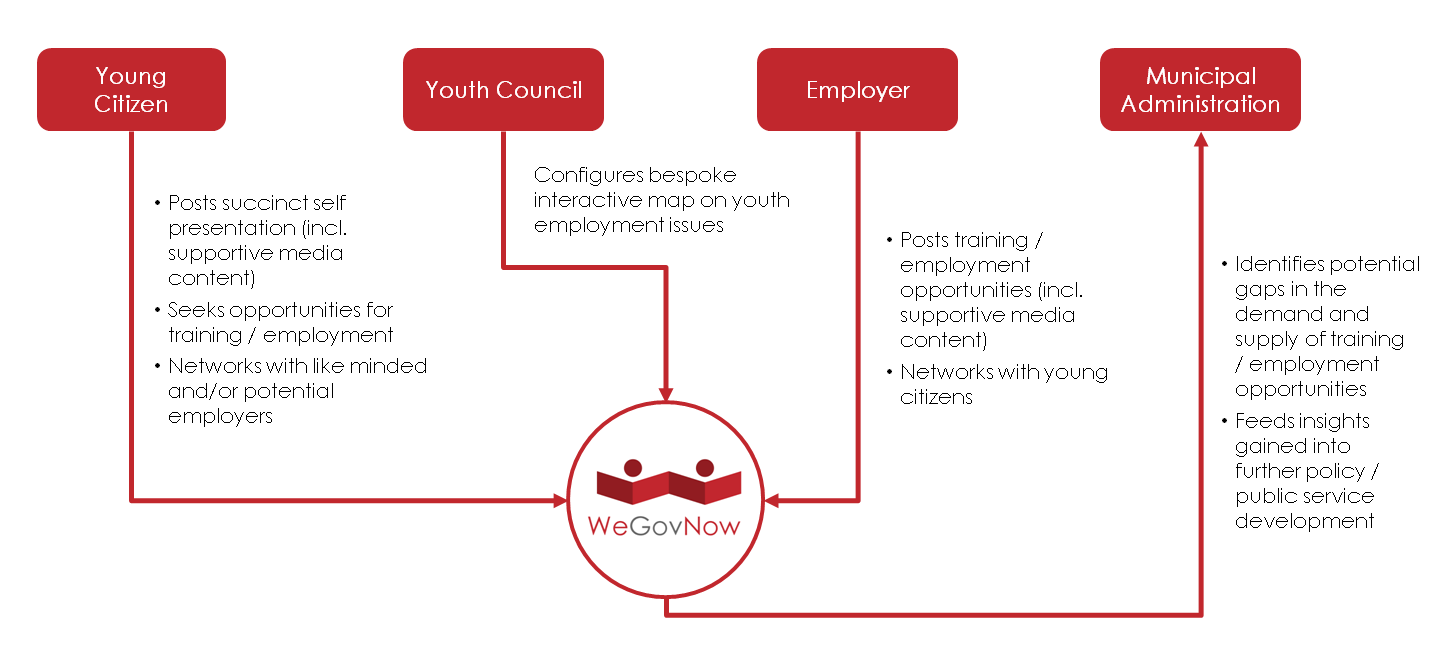
In the framework of its environmental policies the municipality of San Donà di Piave aims at facilitating a more efficient use of energy by public bodies and private households, the ultimate aim being to reduce local CO2 emissions in the area. Some investments have already been planned to be made in order to connect the city centre with other locations in the area by news cycling lanes, e.g. the provincial high school and the secondary school.
Against this general background, the WeGovNow platform has been used in San Donà for co-developing sustainable mobility strategies and practices by involving diverse local stakeholder groups.
How the municipal administration could utilise WeGovNowIn collaboration with local stakeholders, the public administration configured and published a number of bespoke thematic community maps, thereby relying on the standard configuration options generally provided by the platform. Contributions made by the pilot users were monitored by the public administration for being fed into further policy development and implementation (e.g. in relation to an already planned investment into additional biking lanes). How citizens could utilise WeGovNowThe citizens were able to post ideas and comments on new cycling lanes though a thematic, interactive map. Likewise, they could post ideas on sustainable activities though a bespoke map as well as personal pledges for sustainable behaviour. Also, they were able to network with like minded people. |
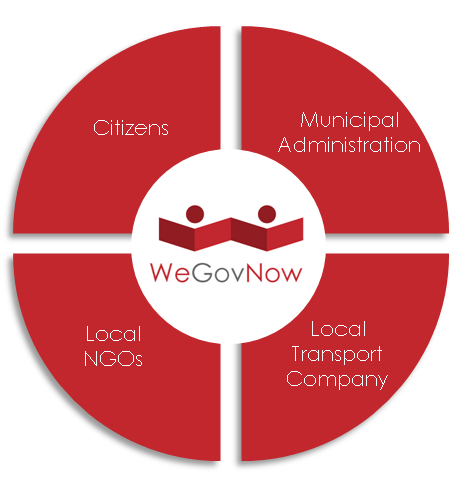 |
NGOs were able to promote sustainable practices and network with interested citizens.
The local transport company had the opportunity to promote sustainable transport offerings.
